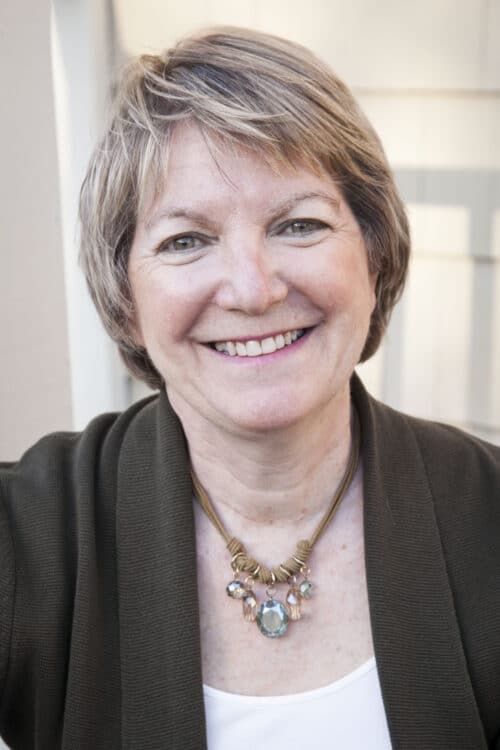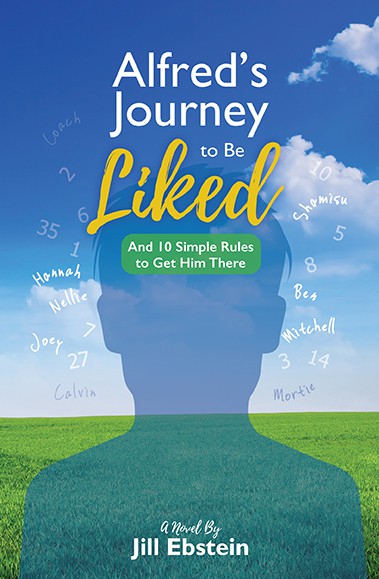We all want to be liked—especially teenagers. But sometimes decoding social cues feels impossible.
Newton author Jill Ebstein’s new book, “Alfred’s Journey to Be Liked,” is a fictionalized account of a neurodivergent teen who just wants to fit in. Ebstein, a mom and grandmother, is known for bringing compassion to thorny topics: She’s best known for the “At My Pace” collection, wherein ordinary women share important stories—from the workplace, from their mothers and more. Ebstein is also a marketing consultant, and much of her work is spent “listening for the subtext,” as she puts it: reading the room and responding to the unsaid.
“At the beginning of COVID, it was such a cauldron of emotions: isolation and anger. People were feeling so disoriented. I was seeing how people were acting out in unhealthy ways, and how much they wanted to be liked and appreciated. I wondered: What would it be like if you were younger feeling this and not having the wherewithal to know how to process these emotions?” she explains.
The book is also rooted in Judaism.

“My Jewishness is rooted in this notion of valuing the humanity of each being, and Jewish values teach me that no one person is superior to the other,” she says. “I created Alfred through a Jewish prism.”
Ebstein’s role as a mom and grandmother also came into play.
“I have a granddaughter now, which is the greatest pleasure in the world. When writing this, I started thinking: What do I want my granddaughter to understand as she gets older, if I’m no longer here? What would I say to her to help her process her world?” she says.
This book unfolds through 14-year-old’s Alfred’s eyes, and he has a hard time moving beyond the concrete and reading social cues. At first, his world is small: He loves chess, data and baseball. His mom hires “Coach” to help expand his world and to teach him important social lessons—which, to be honest, most adults could also use.
I chatted with Ebstein about the book’s 10 crucial lessons.
Don’t be a “know-betterer”: In other words, don’t be a know-it-all—including Alfred, who loves numbers and data. “This has become a word in my community. My rabbi just gave a speech about it last week,” she says. “There are so many ways to slice something. Why should I know better than everybody else?”
Walk in someone’s shoes: Have empathy. It’s a building block for friendship. (In Alfred’s literal case, he tries on a friend’s Converse sneakers to see what it feels like to run around on the basketball court and dribble a ball.)
Show generosity of spirit: Kindness matters more than money.
Humor matters: “When my kids were growing up and they’d come home from school, I’d say: ‘Did anything make you laugh today?’ To me, that’s more important than asking what they learned. Alfred is literal and not easily social. He learns to use humor as a lubricant to make communication easier,” Ebstein says. “You don’t even have to be funny: There are creators, and there are appreciators—and they both really matter. If you appreciate a joke, you can also create a moment of levity, and that counts just as much.”

Define and build your five tools: Everyone has strengths. Alfred loves baseball, and so Coach explains how five-tool baseball players possess multiple skills, like fielding, running, throwing, hitting and hitting for power. But you don’t have to be an athlete to determine your five tools. It’s a good analogy for life. (Alfred’s tools include chess, math and hearing the unspoken.)
Zigzags are a common occurrence in life: “Two steps forward, one step back is a dance step that we do in life. It’s not a straight shot,” Ebstein says. Alfred loses some of his social momentum after a school break, but Coach reminds him that it’s normal and not to give up.
Face your fears: Alfred was afraid to make new friends by starting a chess club. He did it anyway, and it paid off.
Hear the unspoken: Sometimes body language, eye contact and speech patterns reveal far more than words.
Refresh, reset, timeout: Sometimes we all need a break. “We’re not computers,” Ebstein says. It’s hard for Alfred to take time for himself (and away from his chess club) once he makes new friends. He doesn’t want to lose what he gained. But he’s overstimulated, and he realizes that he owes himself a break—and that he won’t risk anything by taking it.
Appreciate “popposites” as adding dimension to life: Alfred’s friend Hannah invented this word to show how special opposites can be. “Basically, it’s OK to accept the nuances and tensions of life. You can love conversation but need quiet. For Alfred’s friend Hannah, she loved her grandma and was sad when she died—but she couldn’t stop laughing at some of the moments in her life that were so humorous. If you can accept the fact that life is a mixed bag, it makes it so much easier,” Ebstein says.
Very true.
Find “Alfred’s Journey to Be Liked” on Amazon.




